Discover the Future of Voice Cloning with the Best AI Tools in 2024
What is Voice Cloning and How Does It Work?
Voice cloning is a fascinating application of artificial intelligence (AI) technology, allowing the creation of voice clones that can speak in the tone and style of a specific individual. At its core, voice cloning operates by analyzing the acoustic characteristics of a source voice and then using that model to generate new speech that sounds like the original speaker.

Comparing Different Voice Cloning Solutions in the Market
ElevenLabs
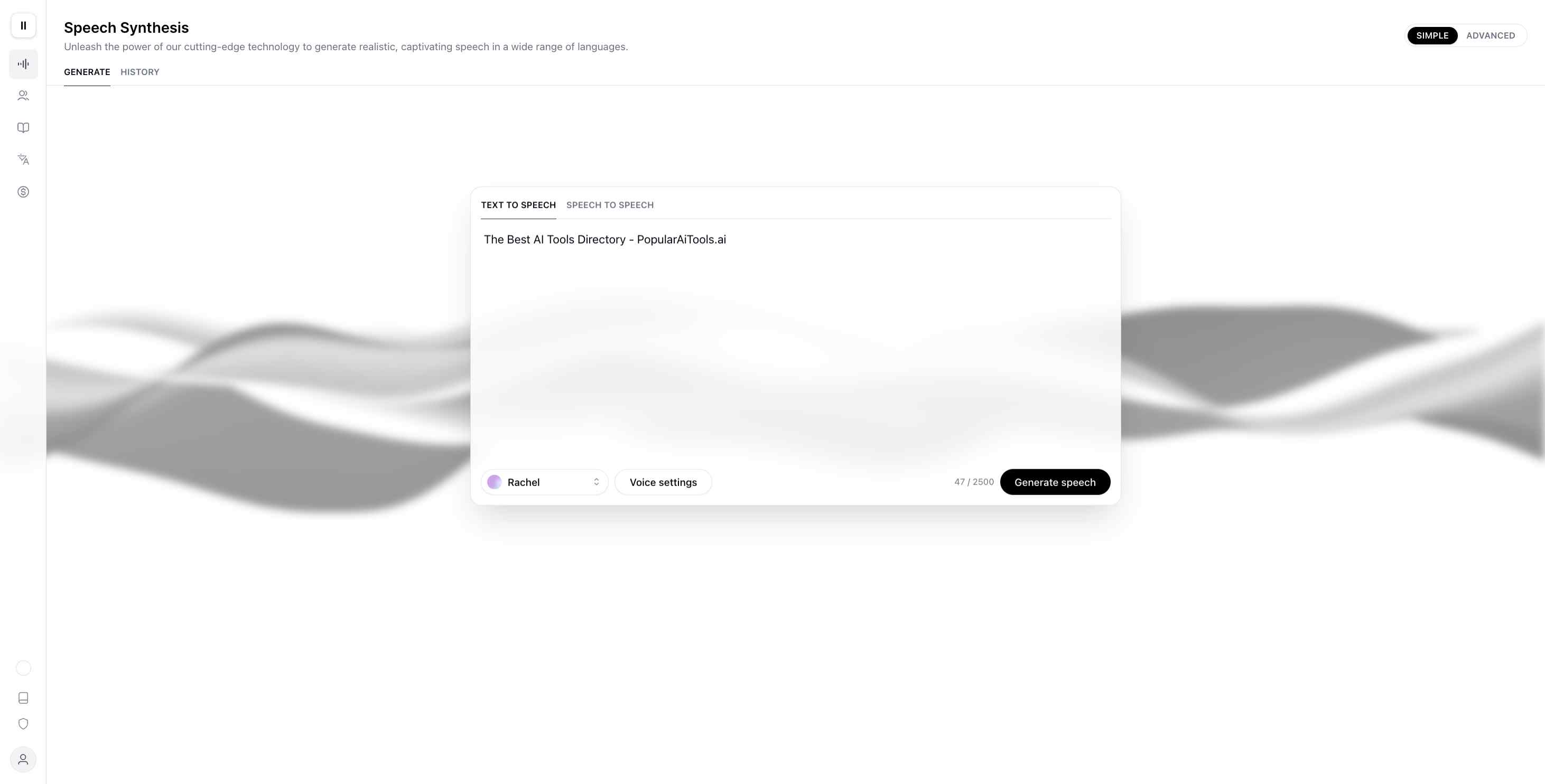
ElevenLabs offers an advanced voice cloning tool that can generate lifelike synthetic voices from text in multiple languages. It features a straightforward interface and powerful customization options, including emotional tone control, making it suitable for a variety of content creation needs. Additionally, ElevenLabs emphasizes ethical AI use, ensuring that voice cloning technologies are used responsibly. Explore their free trial here.

Descript

Descript offers a powerful platform for voice cloning along with a suite of audio and video editing tools. This software is well-regarded for its ease of use, making complex editing tasks manageable for users of all skill levels. It provides features like automatic transcription, podcasting, screen recording, and clip creation. One of the standout features of Descript is its AI voice cloning capability, allowing users to create realistic voice clones from audio samples, which can be particularly useful for creating high-quality synthetic voiceovers. You can try Descript for free through this link.
WellSaid Labs
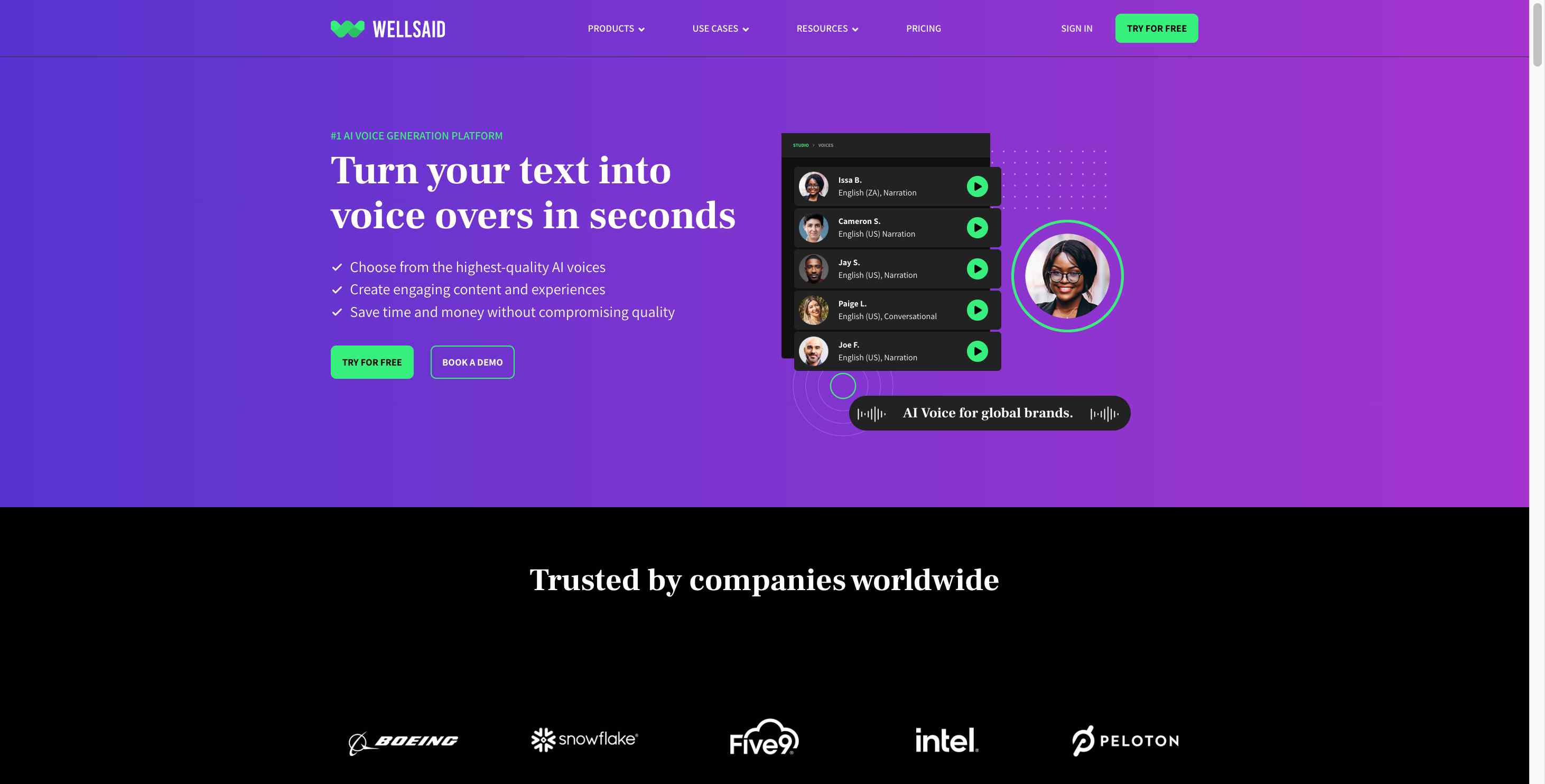
WellSaid Labs features an enterprise-grade AI voice generation platform known for producing exceptionally realistic voiceovers. This solution is favored for its quality and the variety of voice options it offers, catering to different needs such as narration and conversational scenarios. It allows users to control the tone, punctuation, and emphasis, making it a popular choice for creating dynamic and engaging voice content across various applications. A free trial is available through this link.

Murf AI
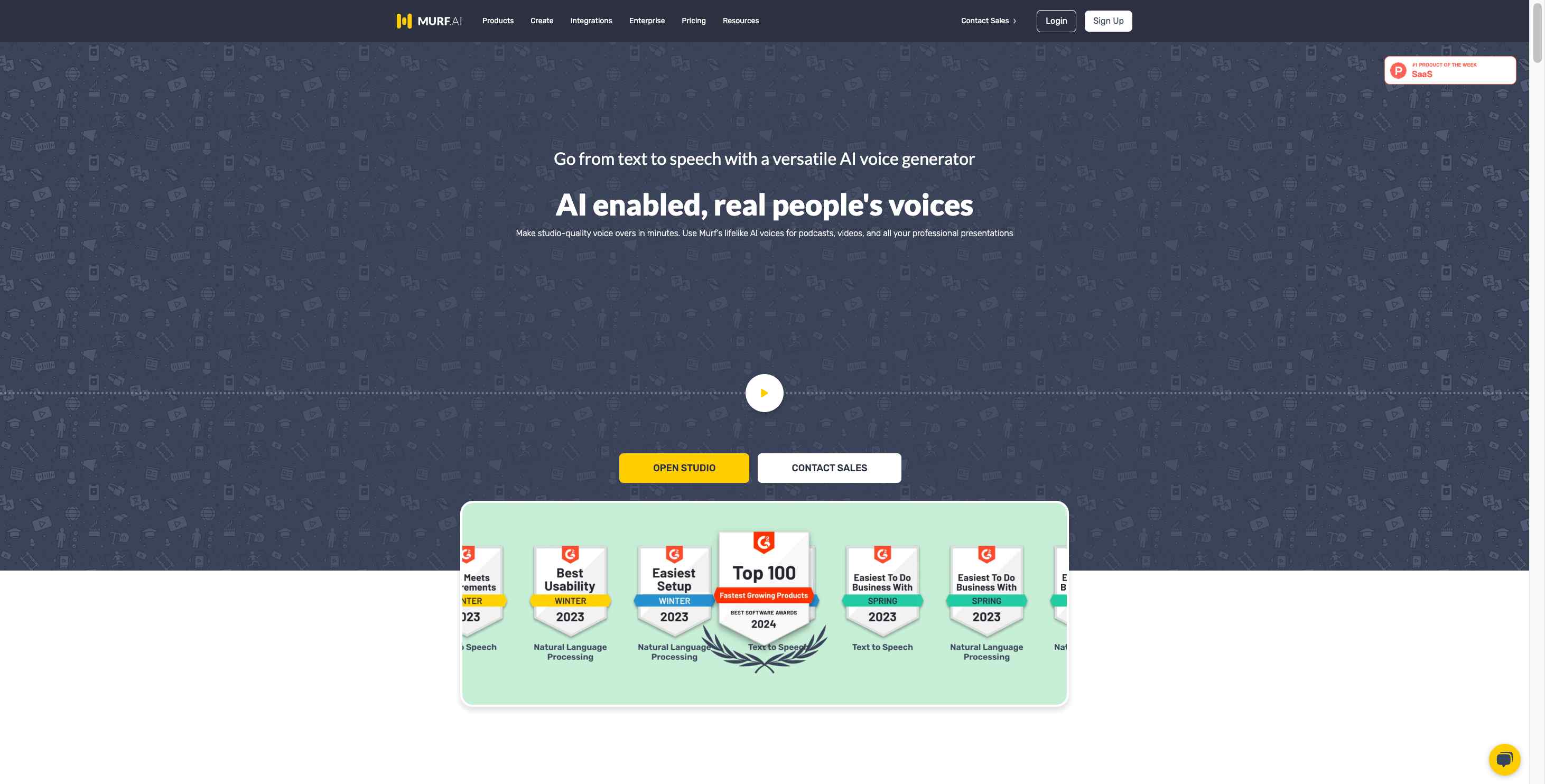
Murf AI provides a versatile AI voice generator capable of delivering studio-quality voiceovers across a wide range of applications, from eLearning materials to corporate videos. It offers over 120 voice options in 20 languages, emphasizing ease of use and quality in its outputs. Murf AI stands out for its straightforward editing tools and its ability to integrate seamlessly with existing workflows. Check out their free trial here.

Play.ht
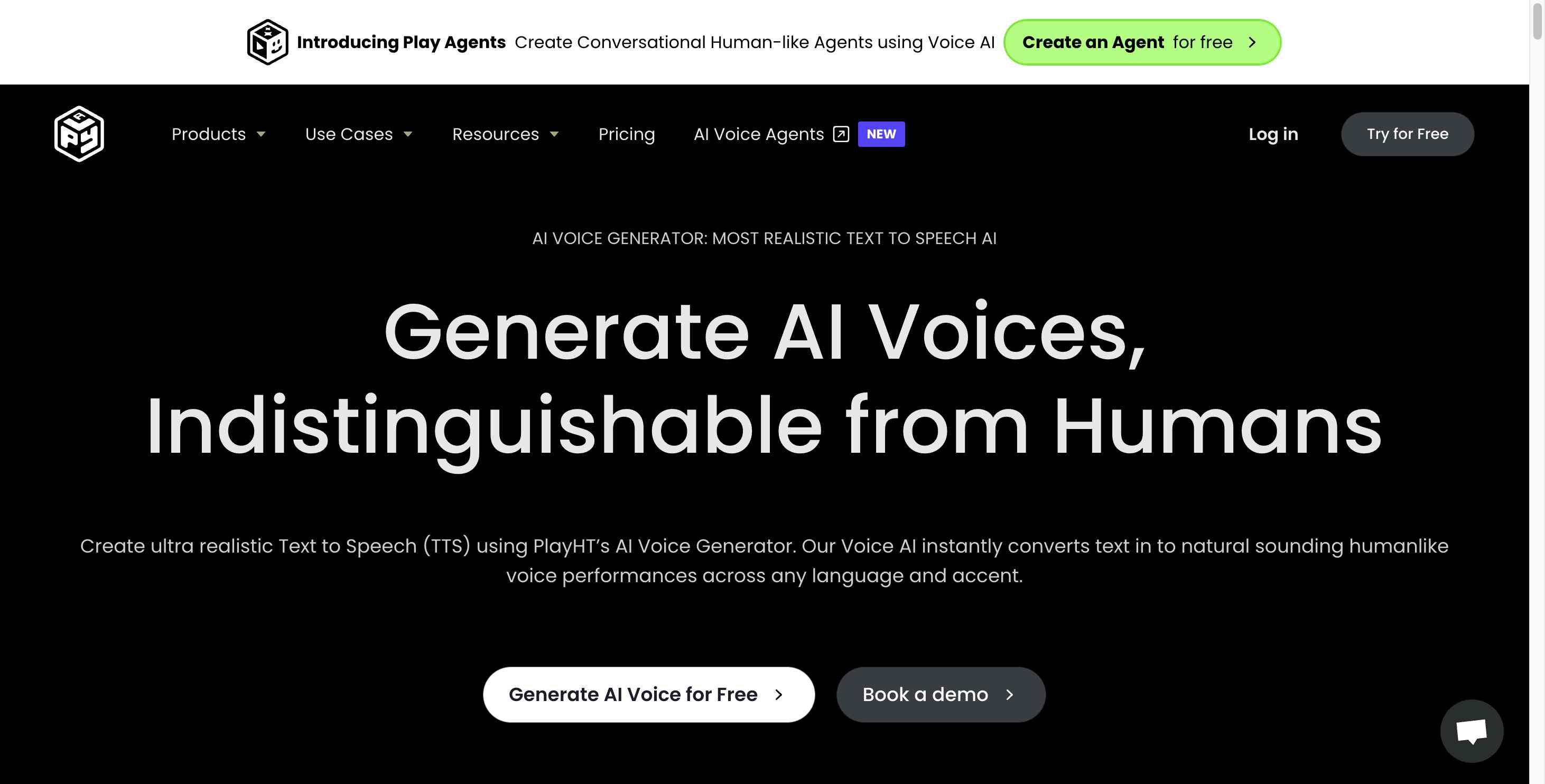
Play.ht offers a comprehensive AI voice generator that supports over 600 voices and 60 languages, making it one of the most expansive services available. It excels in creating ultra-realistic text-to-speech voiceovers and offers advanced features like voice cloning and real-time voice generation APIs. This platform is particularly beneficial for enhancing projects with unique AI voices tailored for specific audiences. Access a free trial via this link.

Altered

Altered provides a unique approach to voice cloning with its Voice Changer software, which allows users to alter their vocal identity in real-time or through post-production processes. This tool is designed for media production and offers features that enable users to change accents, age, and other vocal characteristics while maintaining natural vocal qualities. Altered’s technology is particularly noted for its low latency and high-quality output, making it ideal for live performance settings and interactive applications. Try Altered for free using this link.

Listnr
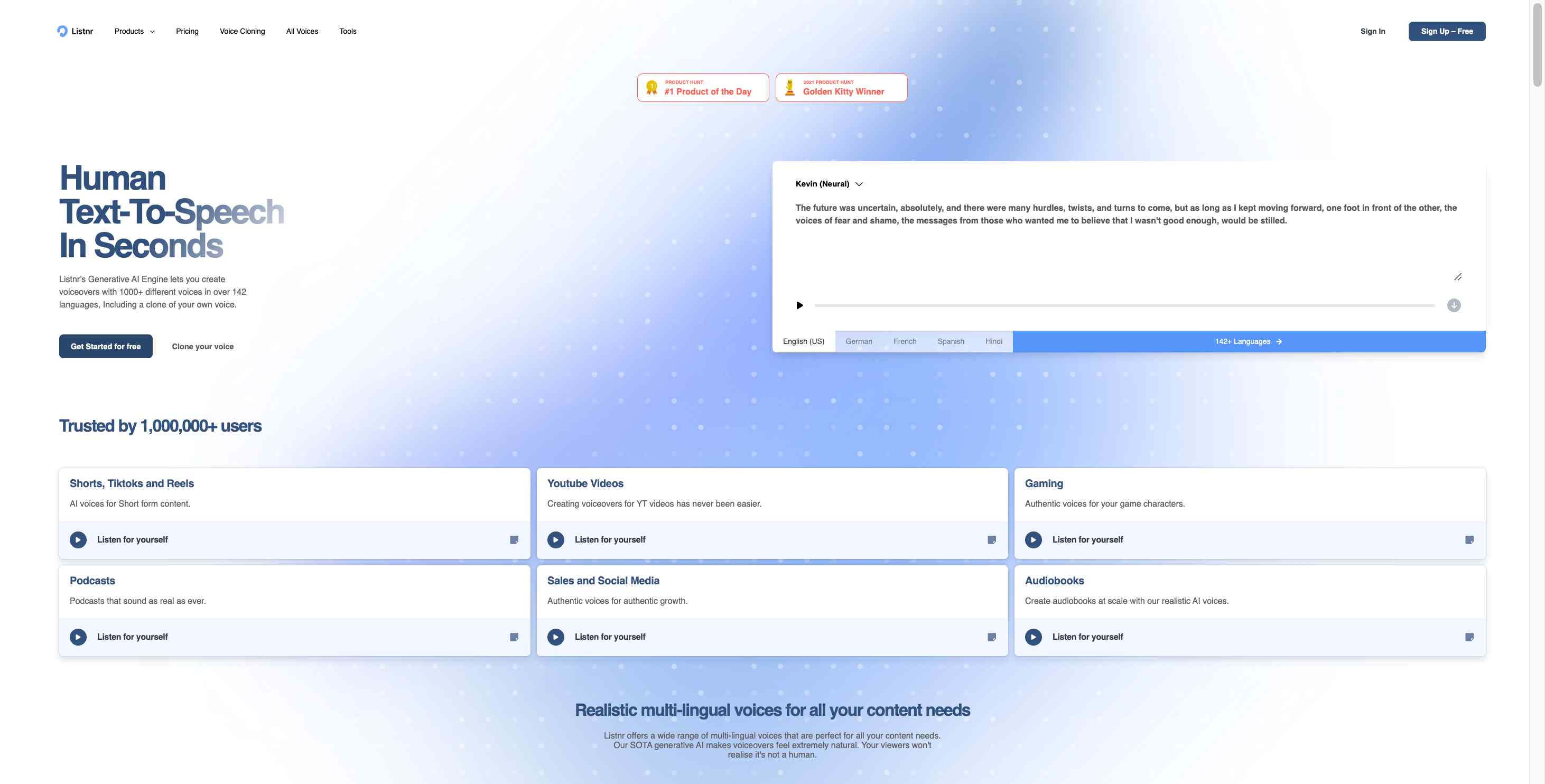
Listnr offers a user-friendly platform for converting text to speech, supporting a wide range of languages and voice styles. Its simplicity and effectiveness make it suitable for podcasters, marketers, and content creators who require high-quality voiceovers without the need for extensive audio editing skills. Listnr’s AI technology also allows for easy integration into various multimedia projects. Access a free trial here.

Each of these platforms offers unique features and advantages, making them suitable for different types of users and applications. Whether you need a tool for professional media production, real-time communication, or content creation, there is a voice cloning solution available that can meet your needs.
Factors to Consider When Selecting a Voice Cloning App
When choosing the right voice cloning app, consider these key factors:
- Compatibility: Ensure the app works seamlessly with your operating system and hardware.
- Voice Variety: Look for a service that offers a wide range of voices and languages, accommodating various project needs.
- Scalability: Consider whether the app can handle your project size, especially for enterprise or professional use.
How to Clone Your Voice Using AI Technology?
Cloning your voice with AI technology involves:
- Recording Samples: Capture clear samples of your speech.
- Uploading to Software: Use a voice cloning app like Descript to analyze your voice.
- Adjusting Settings: Customize the output to ensure the cloned voice meets your needs.
Step-by-Step Guide to Cloning Your Voice with AI
To clone your voice effectively:
- Record in a Quiet Room: Ensure there’s no background noise.
- Use Quality Equipment: A good microphone can capture the nuances of your voice.
- Select the Right Tool: Use apps like WellSaid Labs for professional-grade cloning.
- Fine-Tuning: Adjust the settings in the voice cloning software to perfect the clone.
The Future of Personalized Voice Replication
The future of voice cloning is promising, with technologies like ElevenLabs leading to more personalized user interactions. Innovations in AI will continue to enhance the fidelity and versatility of voice clones.
Is Free AI Voice Cloning Software Worth It?
While free solutions like Play.ht provide access to AI voice cloning, they often lack the advanced features found in paid software. For hobbyists or low-budget projects, however, they can be a viable option.
Exploring the Benefits and Limitations of Free AI Tools
Free voice cloning tools offer basic functionalities which are sufficient for personal use or small projects. However, for commercial quality and advanced features, premium services from providers like Murf AI might be more suitable.
The Potential Risks of Using Free Voice Cloning Apps
Using free apps comes with risks such as lower security measures and potentially less reliable performance. When privacy and quality are paramount, consider investing in reputable solutions like Altered.
What Are the Ethical and Legal Considerations of Voice Cloning?
Voice cloning raises significant ethical concerns, especially regarding consent and misuse. Legal frameworks, like those discussed in platforms such as Listnr, are still evolving to address these challenges.
Understanding the Ethical Implications of Cloning Human Voices
Ethical use involves clear consent from the individuals whose voices are cloned and ensuring that the technology does not facilitate deceptive practices.
Legal Frameworks and Regulations Surrounding Voice Cloning Technologies
Regulations are developing to protect individuals’ rights and ensure responsible use of voice cloning technologies. Services must comply with these legal standards to avoid penalties and safeguard user trust.
Each platform I’ve mentioned offers different strengths depending on your specific needs, ranging from personal projects to professional media production. Always consider both the potential and the limitations of these tools when selecting the best voice cloning software for your purposes.
AI Tools Related Articles – Entrepreneurship and Productivity
Discover AI Integrations and Educational Resources
- AI Tool Categories & Integrations
- AI Courses for Enthusiasts and Professionals
- Submit a Tool to Popular AI Tools
- Advertise Your AI Solutions

Understanding the Basics of Voice Cloning
The process begins with the collection of voice samples from the target person. These samples are then fed into sophisticated AI algorithms, specifically designed for voice cloning. The system extracts unique vocal features such as pitch, timbre, and intonation, which are crucial for creating a convincing voice clone.
Exploring Different AI Voice Cloning Technologies
There are several technologies under the umbrella of AI voice cloning. The most prevalent one involves deep learning and neural networks, which can mimic almost any voice with startling accuracy. These technologies continue to evolve, providing ever more realistic and convincing voice replication capabilities.

The Role of Deep Learning in Voice Cloning
Deep learning plays a pivotal role in the advancement of voice cloning technologies. It enables systems to learn and replicate the nuances of human speech in a way that was once thought impossible. By utilizing vast amounts of voice data, these systems learn to generate new speech that maintains the emotional and tonal characteristics of the original voice.
Why Should You Consider Using Voice Cloning Software?
Utilizing voice cloning software can be beneficial for various applications. From personalized virtual assistants to accessibility features for those unable to speak, voice cloning extends its benefits across numerous domains, making interactions more human-like and personalized.
Applications and Use Cases of AI Voice Cloning
The applications of AI voice cloning are vast and varied. They include but are not limited to:
- Creating digital avatars for virtual reality.
- Enhancing user experience in video games.
- Producing personalized audiobooks and podcasts.
- Offering unique solutions for speech impairment.

Benefits of Using the Best Voice Cloning Tools
Investing in the best AI voice cloning tools can significantly enhance your project or service. These tools provide high accuracy, emotional expressiveness, and versatility in voice types and languages, setting a high standard in the field of synthetic voice creation.
How to Choose the Best Voice Cloning Software?
When selecting the best voice cloning software, it’s essential to consider several key features:
- The quality and naturalness of the generated voice.
- The software’s ability to handle different languages and accents.
- User-friendliness and support provided by the software company.
Explore Featured AI Tools and Blogs
- Explore GPTs and Their Capabilities
- Featured AI Tools for Various Needs
- AI Blog for Latest News and Tips
- 9 Best AI Essay Writers of 2024
Key Features to Look for in AI Voice Cloning Tools
Some critical features to look for in AI voice cloning tools include:
- High fidelity voice reproduction.
- Low latency in voice generation.
- Robust security features to protect voice data.
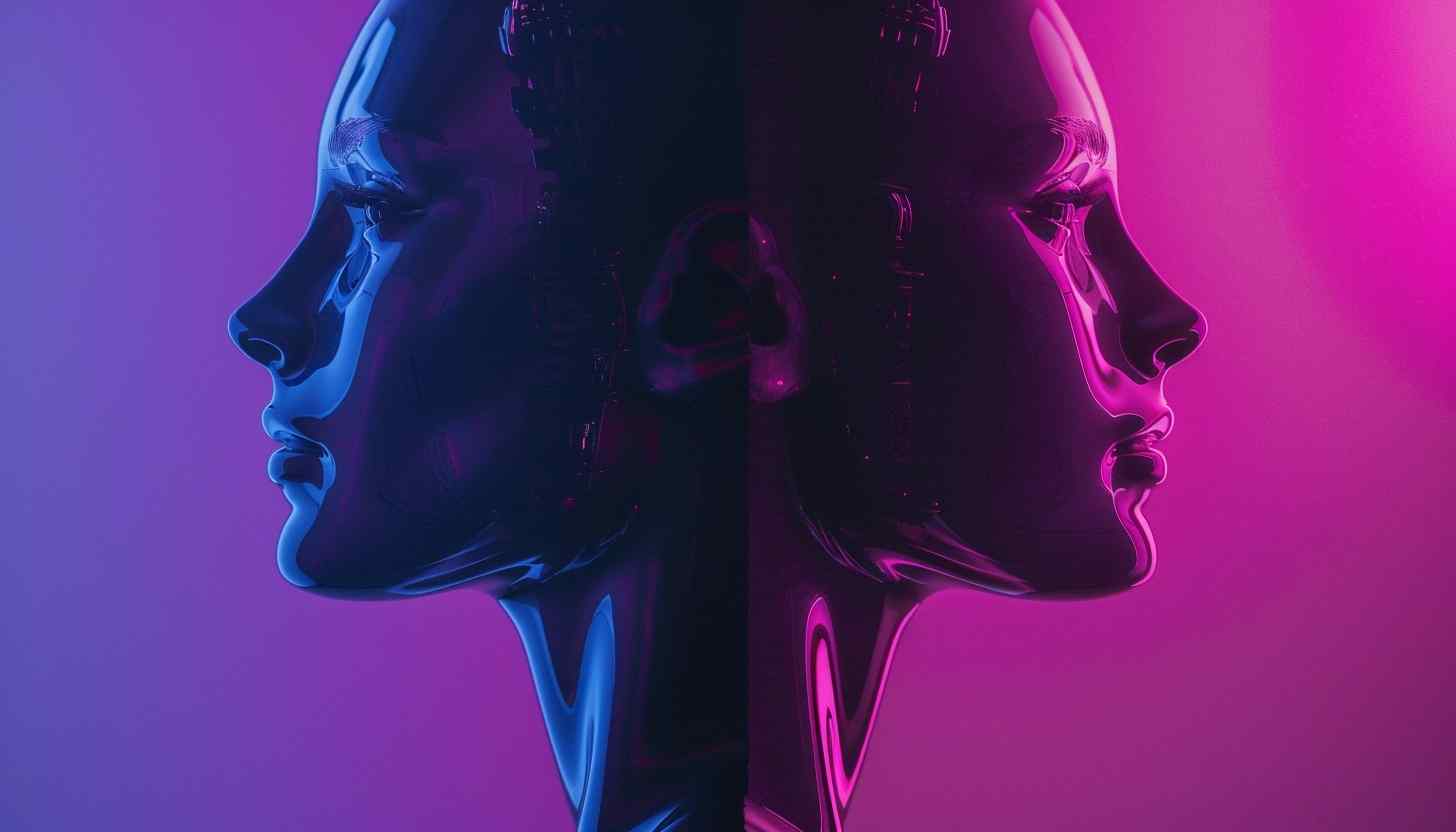
Comparing Different Voice Cloning Solutions in the Market
Several voice cloning apps and software stand out in the market. These solutions vary in terms of usability, feature set, and pricing. Comparing these can help identify which solution best fits your specific needs.
Factors to Consider When Selecting a Voice Cloning App
When choosing a voice cloning app, consider the following factors:
- The app’s compatibility with different operating systems.
- The variety of voices and customization options available.
- The app’s scalability for larger projects or enterprise use.
How to Clone Your Voice Using AI Technology?
Cloning your voice with AI technology involves a few steps:
- Record high-quality voice samples.
- Upload these samples to the voice cloning software.
- Configure the settings to match your preferences.

Step-by-Step Guide to Cloning Your Voice with AI
To effectively clone your voice using AI, follow this detailed guide:
- Choose a quiet environment to record your voice samples.
- Use a good quality microphone to ensure clear audio.
- Provide the voice cloning software with several minutes of your speech to analyze.
The Future of Personalized Voice Replication
The future of voice cloning looks promising, with advancements leading to more personalized and seamless experiences in technology interaction. Personalized voice skins will likely become a norm in interactive media, enhancing both user engagement and content accessibility.
Is Free AI Voice Cloning Software Worth It?
While free AI voice cloning software offers a no-cost solution, it often comes with limitations in voice quality and features. For professional or more demanding uses, investing in a paid solution is advisable.
Exploring the Benefits and Limitations of Free AI Tools
Free voice cloning tools provide accessibility to beginners and those with limited budgets. However, they may lack the advanced features needed for complex projects.
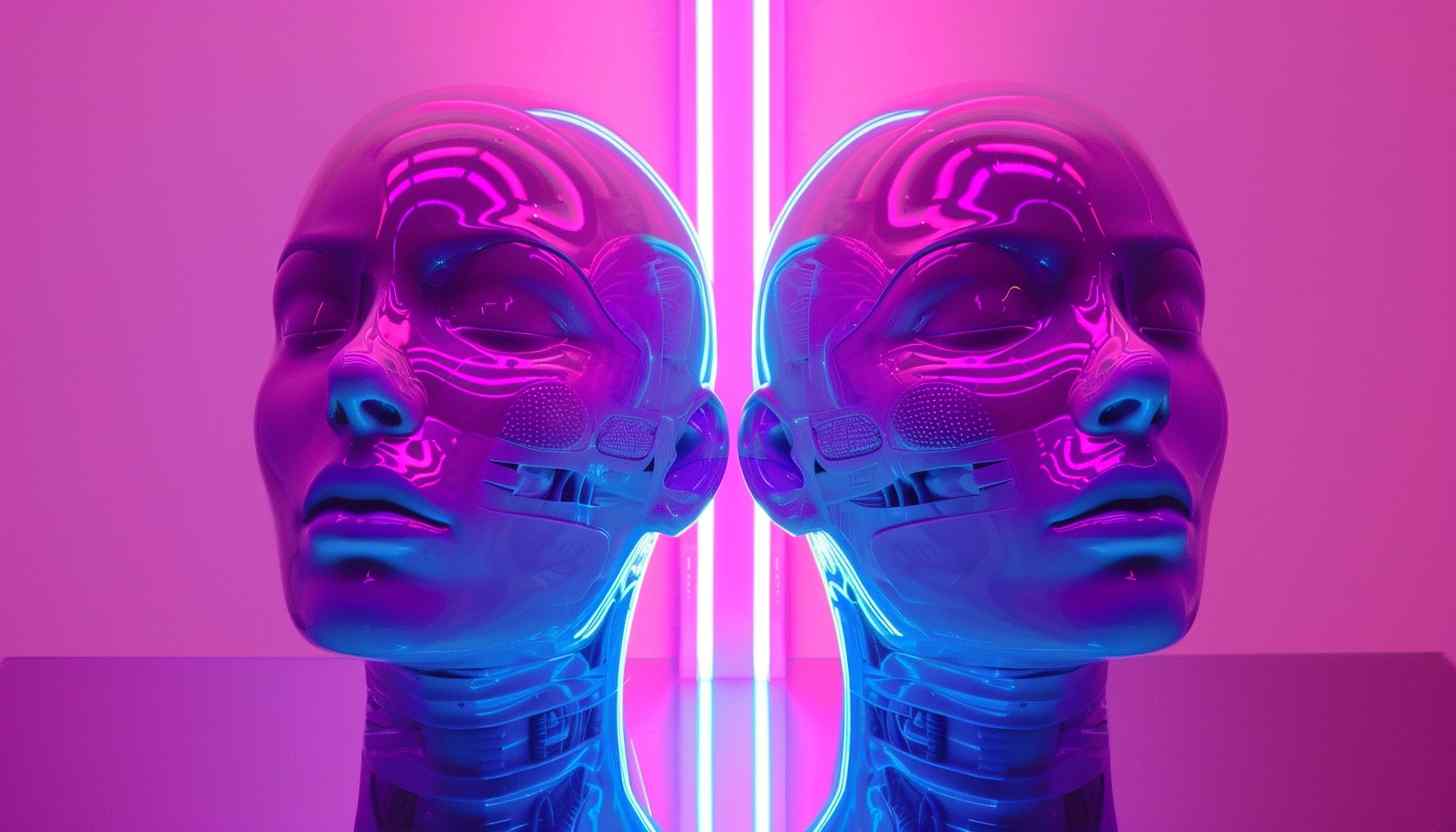
The Potential Risks of Using Free Voice Cloning Apps
Using free voice cloning apps can expose users to risks such as lower security measures and less reliable performance. It’s important to evaluate these factors when choosing a voice cloning solution.
Dive Into AI Tool Categories and Reviews
Understanding the Ethical Implications of Cloning Human Voices
Ethical considerations of voice cloning include the potential for misuse in impersonating others without consent and the need for clear guidelines on the use of someone’s digital likeness.
Legal Frameworks and Regulations Surrounding Voice Cloning Technologies
As voice cloning technology advances, so does the need for robust legal frameworks to ensure its responsible use. Regulations may need to address issues such as intellectual property rights and the ethical use of cloned voices.

Frequently Asked Questions
What Is a Voice Clone and How Does AI Voice Cloning Work?
A voice clone is a digital reproduction of a person’s voice, created using AI voice cloning technologies. These technologies analyze audio samples of the target voice and then use sophisticated AI algorithms to replicate the unique characteristics of that voice in new audio content.
Can I Clone a Voice Using Any AI Voice Cloning Software?
Not all AI voice cloning software offers the same capabilities. To clone a voice, you should select advanced AI voice cloning tools that provide detailed customization and high fidelity, ensuring the cloned voice sounds as close to the original as possible.
What Are the Best AI Voice Cloning Tools Available in 2024?
In 2024, some of the best AI voice cloning tools include well-known platforms like Descript, WellSaid Labs, and Murf AI. These tools are celebrated for their effectiveness in creating realistic and high-quality voice replicas.
How Do I Choose the Best AI for Voice Cloning?
Choosing the best AI for voice cloning involves evaluating several factors, including the quality of the voice reproduction, the ease of use of the software, and the specific features it offers, such as emotional tone control and support for multiple languages.
What Are the Typical Use Cases for AI Voice Cloning?
AI voice cloning has a wide range of use cases, from creating personalized digital assistants and enhancing user experience in video games to generating voiceovers for audiobooks and aiding in language learning applications.
How Does AI Voice Cloning Differ From Traditional Text to Speech?
While traditional text to speech technologies convert written text into spoken output, AI voice cloning involves creating a voice clone that mimics a specific person’s voice. This allows for more personalized and natural-sounding audio output.
Is It Ethical to Use AI Voice Cloning Software?
The ethics of using AI voice cloning software is a topic of significant debate. It is considered ethical when used with consent and for purposes that do not deceive or harm individuals, such as for accessibility or entertainment. However, without proper regulations and ethical guidelines, it could be misused.
What Legal Considerations Should Be Taken Into Account When Using a Voice Cloning Tool?
When using a voice cloning tool, it’s important to consider legal factors such as copyright and consent. Ensuring that you have the right to use the voice samples and that the cloned voice will not violate any laws or regulations is crucial.
What is the best app to clone your voice?
The best app to clone your voice depends on your specific needs, such as the level of realism you require and the purpose of the voice clone. Descript and WellSaid Labs are highly regarded for their user-friendly interfaces and high-quality voice outputs. Descript offers robust editing features, while WellSaid Labs is praised for its realistic and diverse voice options.
What is the most realistic AI voice clone?
WellSaid Labs is often recognized for producing some of the most realistic AI voice clones available. Their technology focuses on creating natural-sounding voices that are difficult to distinguish from actual human speech, making them a top choice for professional applications that require a high level of voice authenticity.
Is there an AI that mimics my voice?
Yes, there are several AI platforms that can mimic your voice with high accuracy. Descript provides a feature called “Overdub” that allows you to create a digital voice that sounds like you, which can then be used to generate new audio content that mimics your speech.
Is there any free AI voice cloning?
Yes, there are free AI voice cloning options available, though they may offer limited features compared to paid versions. Platforms like Play.ht provide free trials or limited free services, which can be a good starting point for personal projects or experimentation.
Can I clone my voice with AI?
Absolutely, cloning your voice with AI is possible using voice cloning software that analyzes your voice samples and then reproduces your voice characteristics. This technology is widely used in creating digital voice assistants, dubbing for media, and other applications where personalized voice output is beneficial.
How do you clone a human voice?
To clone a human voice, you typically need to:
- Record voice samples: Capture clear recordings of the voice you want to clone.
- Choose a voice cloning tool: Select software that supports high-fidelity voice cloning.
- Process the audio: Upload your recordings to the software, which analyzes and learns the specific traits of the voice.
- Generate the clone: Use the software to create new speech that sounds like the original recordings.
Can AI recreate my voice?
Yes, AI can recreate your voice by using advanced machine learning algorithms that analyze the nuances of your voice samples and generate new speech that mimics those characteristics. This technology has advanced significantly, allowing for highly accurate voice replication.

